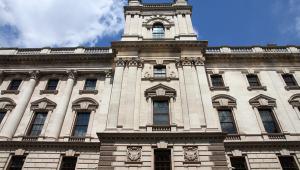Ahead of this year’s Autumn Statement, the challenges had been mounting for the new chancellor long before the EU referendum result added to the uncertainty. Philip Hammond had to deliver his first major fiscal report, having inherited a public sector that had already experienced years of spending cuts and a set of fiscal targets for 2020 that have all now been shelved.
However, given the government’s commitments over the Brexit decision, Hammond’s address needed to paint a picture of a financially confident Britain as it seeks to negotiate its exit from the EU and a government prepared to boost productivity and trade through new infrastructure and innovation.
Off the bat, the chancellor made good on his earlier hints to drop his predecessor’s target of achieving a budget surplus by 2020. A move that must have come as a relief to many public finance professionals, as it meant departmental spending plans remained almost entirely intact.
The decision not to pursue new savings also provided the chancellor with room to focus on some welcome infrastructure investments through additional borrowing. This will include £2bn for research & development, and I hope this will involve social and intellectual capital, as well as infrastructure.
There were a number of other welcome announcements, specifically, the recommitments to devolution deals and the new borrowing powers for combined mayoral authorities, which will reflect their new responsibilities, although further details are needed over what exactly the new powers will be.
London will receive new devolved funding streams, this includes a budget for adult education and additional controls over employment support services. The capital will also get it’s £3.15bn share of the national affordable housing funding.
But overall, it was not a particularly detailed or encouraging Autumn Statement. Despite the big-ticket announcements around borrowing to fund investment, by committing to the current spending plan, there will be no easing of austerity for public services. The government will keep to its broad priorities for the rest of this Parliament, which unfortunately includes maintaining ring fencing for the NHS, defence spending, overseas aid and the triple-lock on pensions.
More materially, I didn’t see anything concerning the dangerously low levels of social care funding now seen across councils. Perhaps we shall see something on the precept and better care fund in the local authority settlement next month, but I am not going to hold my breath.
I am also rather concerned over the distribution of investment, given the lack of support for ‘Broken Britain’s’ areas of high need, which are in real danger of being missed out on the benefits to city deals and devolution.
By the end of his speech, the chancellor revealed he intends to do very little for the new Spring Statements. The last Autumn Statement certainly lived up to these low expectations.




















